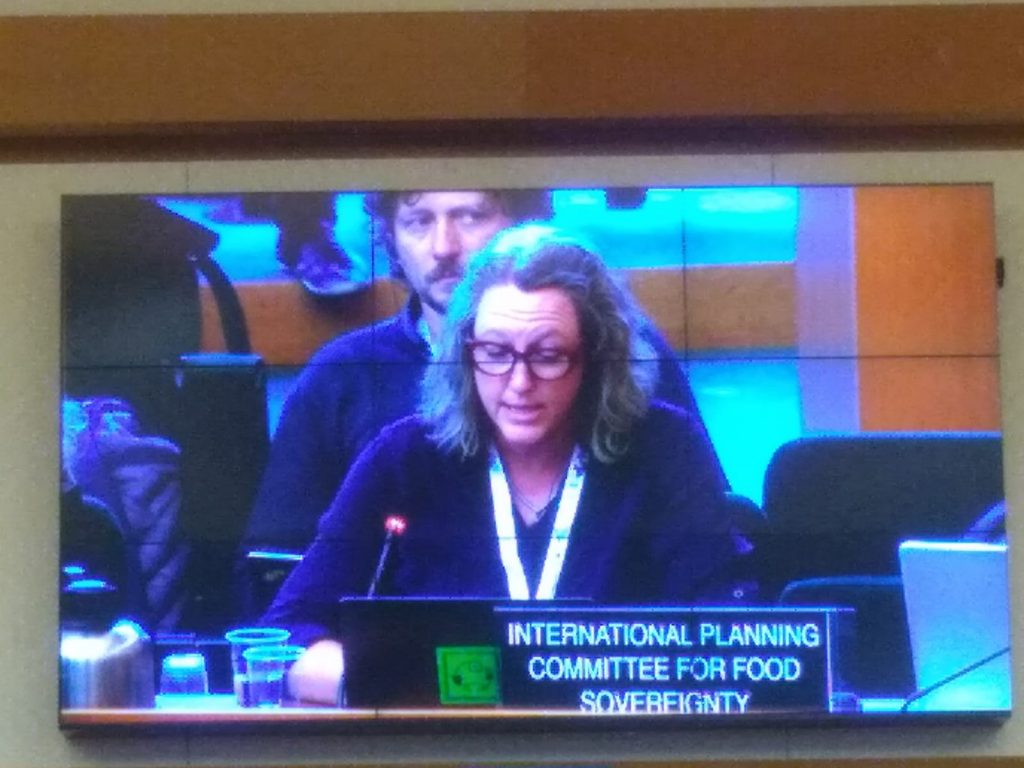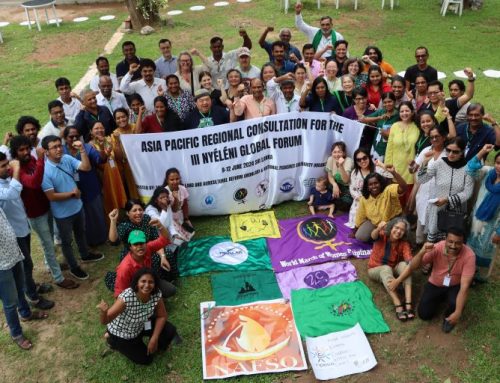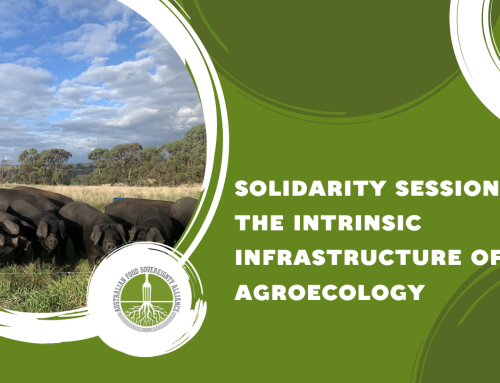First they ignore you, then they laugh at you, then they fight you, then you win.
What this homily so popular with activists and politicians is perhaps missing is the feature that arose in late capitalist society – then they buy you – and it’s unclear whether that happens before or after the fight, or in place of the fight.
There is currently a dramatic increase in attention paid to regenerative and agroecological farming to combat climate change – something we activists and farmers are celebrating – but with the cheers must come sobering cautionary tales.
Big Ag and Big Food have a long history of cooption and destruction of positive changes in the system – take the farce that is ‘free-range eggs’ in Australia today, where chickens need only have ‘access to outdoors’ from giant, stinking sheds where they spend most of their time, and stocking densities can be up to 10,000 birds per hectare. Industrial organics, ‘naturally grown’ claims, and now the emergence of lab-grown meat as a clean, green alternative are further examples of the subterfuge built into the industrial system.
So when the Eat-Lancet Commission Report ‘Healthy Diets from Sustainable Food Systems’ was released, naturally many of us read the recommendations and then immediately followed the money. The inimitable Chris Ennis of CERES Community Environment Park wrote a great piece exposing the vested interests of the Eat Foundation and its scientists, with links to big fertilizer company Yara International, and partnerships with global do-gooders as diverse as Nestlé and Syngenta. At the launch last weekend in Melbourne, we heard a lot about the promise of the next Green Revolution (hang on, isn’t that what got us into this mess in the first place?) and GM, and it sure didn’t sound like we were at the launch of a report on how to achieve personal and planetary health anymore.
But what about the content of the report? Are the recommendations any good?
Not really. It starts with the reductive nutritionalist discourse that we need to shift globally to healthy diets, and they’ve got the diet for us (but no roadmap for how we’re going to shift The Entire World to said diet). First off the menu is meat – with no distinction between production models for meat, so pastured pork, poultry, beef, and lamb are treated as though they have the same environmental impact as raising animals in sheds and feedlots. And although the report calls for a reduction in sugar, it curiously recommends you get more calories from sugar (120 kcal/day) than from meat (‘optionally’ up to 92 kcal/day). An astonishing 291 kcal/day should come from nuts – astonishing because the push to eat more almonds is wildly at odds with the negative impacts those thirsty monocultures are having on places like the central valley of California or along the Murray River in Victoria. It’s like the report was written by vegans – because it largely was. In another slightly bizarre turn, potatoes are about as low on the list as meat (sorry, Peru).
While the report purports to address personal and planetary health, its focus on production models is myopic at best, and contradictory at worst. It totally ignores agroecology – the form of agriculture promoted by the Food & Agriculture Organisation (FAO) of the United Nations – and it recommends an increase in nitrogen application in places like Africa. One could almost believe a fertilizer company helped write it. Oh, yeah, they (essentially) did. (See above.) Where are the peasants who produce up to 70% of the world’s food in this report? Strangely absent.
Oops – I forgot to do the feedback sandwich with a whole-grain positive bun around the vegetables of dubious origin. There are redeeming features in the report – a reduction in meat consumption in the Global North is a good thing to recommend, but should come with an ‘eat better meat, less’ explanation. Taking animals out of the system is not in fact a sustainable proposal, as many have written already. But eradicating intensive livestock production would be a great outcome – had the report suggested that specifically. Perhaps the ties with Unilever (who are now investing in lab meat) made that unpalatable?
The authors call for halving food loss and waste – this is a good call. But the means to do so remain fuzzy – ‘improving post-harvest infrastructure, food transport, processing and packaging, increasing collaboration along the supply chain, training and equipping producers, and educating consumers.’ Okay. Or how about we radically depart from the productivist mindset, long supply chains, and disconnected retail decisions made by massive corporations who reject bananas based on how much or how little they curve.
Strategy 4 in the report calls for strong and coordinated governance of land and oceans – a particularly cynical call given the infiltration of all the UN bodies who do this critical work by the vested interests of Big Ag and Big Food, including Eat Foundation’s buddies at Nestlé, Syngenta, and Monsanto-Bayer.
As I tried to work out how and what to write about the Eat Lancet Report, I stopped caring what the diet recommends or the lack of internal logic between their recommendations around production and consumption, and shifted back to the fundamental questions we ask in the food sovereignty movement – does this ‘solution’ put more power back in the hands of the people or does it remain with multinational corporations? Do people get to participate democratically in the decisions being made about where, by whom, and how their food is produced, processed, and distributed? No? Then I’m not interested. It’s another false solution offered by those who stand to profit from it.
I’ll finish where I started – then they buy us. The likes of the Eat Foundation, the Bill and Melinda Gates Foundation, Richard Branson, Kimbal Musk – and so many other charitable foundations, organisations, and people like them – aren’t advocating for a better food system because they’re just really great people – it’s because they smell the money. They’re working with the very multinationals who have created a food system that is devastating ecosystems – Unilever, Cargill, Monsanto – who are now shifting to ‘sustainable’ production of plant-based foods and lab-grown meat in a bid to ‘save the planet’ they’ve trashed.
You may (rightly, I reckon) think the philanthrocapitalists have some good intentions, but their multinational corporate partners sure don’t. They’ve just discovered their next market – and you’re it.
Tammi Jonas, President





